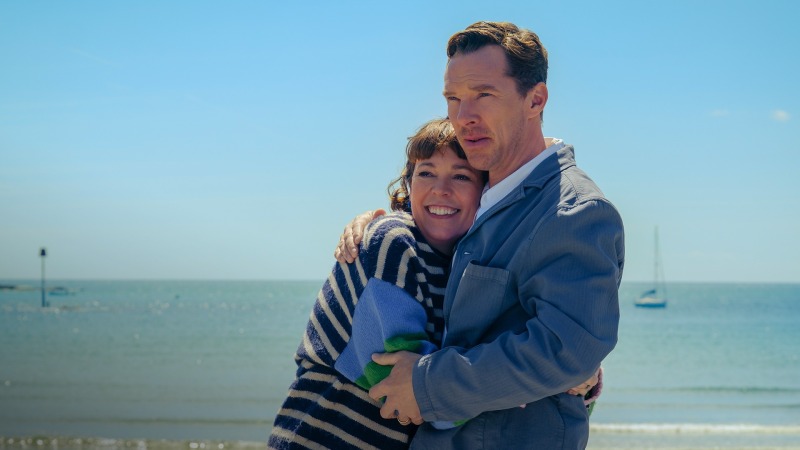Benedict Cumberbatch and Olivia Colman Trade Barbs in The Roses, But its Thorns Aren’t Sharp Enough

One thing the slick and deceptively tidy marriage comedy The Roses gets right is the seductive, sometimes toxic power of a relationship forged on mutual witticisms and clever banter. This is the lifeblood of the classic romantic comedy, and the movie understands the allure; how could it not, with Benedict Cumberbatch and Olivia Colman wrapping their precise diction around playful put-downs and a dash of self-deprecation while staring, rapt, into each other’s eyes? Theo (Cumberbatch), an architect, and Ivy (Ivy), a chef, meet by chance and bond over their caustic assessment of those who don’t appreciate their respective crafts. The movie jumps ahead to their married-with-two-kids life in California, where Theo has found greater success as an architect, and is able to help bankroll a cute little seafood restaurant for Ivy to run, so she can follow her creative whims more readily than in her pastry-chef gig.
But when their fortunes shift and Ivy suddenly becomes the dominant family breadwinner, their relationship changes, too. The barbs once aimed at the outside world and perhaps only occasionally, almost flirtily at each other start to sting a bit more. Resentments and selfishness break through the surface, no longer fully disguised by the couple’s mutual cleverness and former willingness to admit when they were behaving unreasonably.
If you’ve seen the 1989 film The War of the Roses or read the novel that film and this one are both based upon, you may be wondering when divorce enters into it. In adapting the material for 2025, screenwriter Tony McNamara and director Jay Roach spend more time exploring the shifting dynamics of the Rose marriage, rather than romping through the smoldering wreckage. The duel that escalates once the characters decide to formally split up – complete with ruthless attorney Eleanor (Allison Janney), pitted against the couple’s significantly less ruthless friend Barry (Andy Samberg) – is third-act stuff, delivered largely in montage. Much of the movie focuses more on characters attempting to be nice to each other and failing, rather than the brutal one-upmanship the ’89 film is known for.
Theoretically, this is a smart decision that differentiates The Roses from its predecessor (along with the casting of Cumberbatch and Colman over the decidedly differently vibed Michael Douglas and Kathleen Turner), updates it for a time when an upper-class wife and mother would not be as expected to devote as much of her time solely to child-rearing, and allows the movie to dig further into the characters’ psychology. In practice, spending so much time dissecting the particulars of the Roses marriage as they develop, rather than through their recriminations and litigations, makes The Roses feel rather like a prequel – a black comedy’s origin story, rather than the dark stuff itself.
-

-

-

-

-

-

-

-

-

-

-

-

-

-

-

-

-

-

-

-

-

-

-

-

-

-

-

-

-

-

-

-

-

-

-

-

-

-

-

-








































